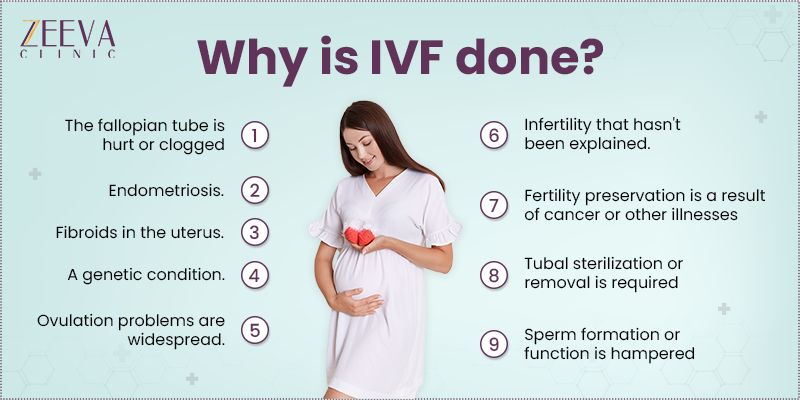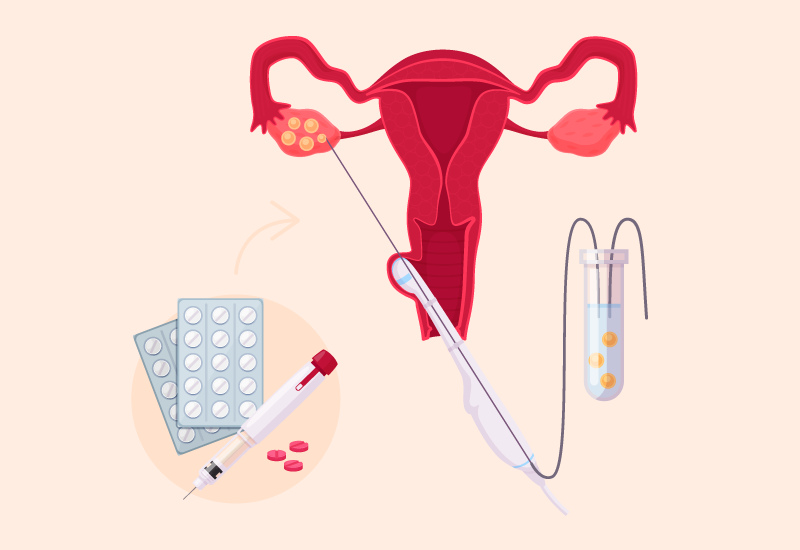
Is IVF Covered by Insurance? Your Guide to Understanding Coverage, Costs, and Options
April 12, 2025
How Long Does IVF Take? Your Complete Guide to the Timeline
April 12, 2025Why Is IVF Controversial?
In vitro fertilization, or IVF, has been a game-changer for millions of people dreaming of starting a family. Since the first “test-tube baby,” Louise Brown, was born in 1978, this medical marvel has helped countless couples overcome infertility. But even with all the joy it brings, IVF stirs up a lot of debate. Some see it as a miracle of science, while others worry about its ethical, social, and even biological ripple effects. So, why does something so hopeful spark such strong opinions? Let’s dive into the heart of the controversy and explore what’s really going on.
The Basics of IVF: A Quick Rundown
IVF is a process where doctors take an egg from a woman, fertilize it with sperm in a lab, and then place the resulting embryo back into the womb to grow. It’s a lifeline for people who can’t conceive naturally due to issues like blocked fallopian tubes, low sperm count, or age-related fertility decline. Sounds straightforward, right? But beneath the surface, IVF raises big questions about life, money, and society that don’t have easy answers.
The Ethical Debate: When Does Life Begin?
One of the biggest reasons IVF gets people talking is the question of embryos. During IVF, doctors often create multiple embryos to increase the chances of success. Not all of them get used, though—some are frozen, donated, or even discarded. This is where things get tricky.
For some, an embryo is just a cluster of cells, no different from a seed that hasn’t sprouted yet. But for others, especially those with strong religious or moral beliefs, that tiny embryo is a human life from the moment it’s formed. If it’s discarded, they see it as ending a potential person, which feels a lot like abortion to them. In fact, a 2022 study from the Guttmacher Institute found that about 1 in 5 Americans believe life begins at fertilization, fueling the argument that unused embryos deserve protection.
So, what happens to those extra embryos? Couples can choose to:
- ✔️ Freeze them for later use.
- ✔️ Donate them to other families or for research.
- ❌ Discard them if they’re not needed.
Each option comes with its own set of feelings and beliefs. Freezing might seem like a safe middle ground, but what if a couple divorces or doesn’t want more kids? Donation raises questions about who “owns” the embryo, and discarding them outright can feel like a moral line too far for some. It’s a personal choice wrapped in a public debate, and that tension keeps IVF in the hot seat.
Money Matters: Who Can Afford IVF?
IVF isn’t cheap. A single cycle can cost between $12,000 and $25,000 in the U.S., according to the American Society for Reproductive Medicine (ASRM). Insurance doesn’t always cover it, and even when it does, patients often face hefty out-of-pocket costs. This price tag makes IVF feel like a luxury for the wealthy, leaving many families out in the cold.
Think about it: if you’re a young couple scraping by, how do you justify spending the equivalent of a car—or even a small house down payment—on a chance at a baby? A 2023 report from the U.S. Department of Health and Human Services showed that only about 1 in 4 infertile couples can access fertility treatments due to cost. That gap creates a divide—some call it unfair, others call it just the way the world works.
On the flip side, supporters argue that IVF’s cost reflects the cutting-edge tech and expertise involved. But critics say it’s a system that exploits desperate families, turning a basic human desire into a high-stakes financial gamble. Should having a baby be this expensive? It’s a question that hits hard and keeps the controversy alive.
Interactive Element: How Much Would You Pay?
Imagine you’re facing infertility. What’s the most you’d spend on IVF for a shot at parenthood?
- A) Up to $5,000
- B) $5,000-$15,000
- C) $15,000-$25,000
- D) Whatever it takes
Drop your answer in the comments—it’s a tough call, and we’d love to hear your thoughts!
The Science Angle: Are IVF Babies Different?
Here’s something you might not hear every day: some folks worry that IVF messes with nature in ways we don’t fully understand. The process involves hormones, lab equipment, and sometimes even genetic screening. Could that affect the kids born from it?
Research says IVF babies are mostly just like any other kids. A 2021 study in the journal Fertility and Sterility tracked over 2 million IVF births and found no major differences in health or development compared to naturally conceived kids. But there’s a catch—IVF does slightly increase the odds of twins (hello, multiple embryos!) and rare conditions like imprinting disorders, where genes don’t “turn on” quite right. The risk is tiny—less than 1%—but it’s enough to make some people pause.
Then there’s the long game. IVF lets people who might not pass on their genes naturally—like those with severe infertility—have kids. Some argue this could weaken the gene pool over time, passing down traits that make conception harder. Scientists counter that infertility isn’t always genetic; it’s often caused by things like stress or pollution. Still, the “playing God” vibe of IVF keeps this debate simmering.
Religion and IVF: A Clash of Beliefs
Religion throws another layer into the mix. Different faiths see IVF through their own lenses, and the results aren’t always pretty.
- Catholicism: The Catholic Church says no to IVF. Why? It separates sex from procreation, which they believe should stay linked. Plus, the embryo issue—discarding them is a big deal when you see them as life. The Vatican’s 1987 document Donum Vitae calls IVF “morally unacceptable,” and that stance hasn’t budged.
- Islam: It’s more of a mixed bag. Many Muslim scholars are okay with IVF for married couples using their own eggs and sperm, but surrogacy or donor embryos? That’s often a no-go, seen as blurring family lines.
- Judaism: Generally more open. Jewish law prioritizes having kids, so IVF gets a thumbs-up as long as it follows certain rules, like using the couple’s own genetic material.
These views shape laws and attitudes worldwide. In places like Italy, with a strong Catholic influence, IVF rules are strict—think limits on how many embryos you can make. Meanwhile, in Israel, where Judaism encourages family-building, IVF is widely supported and even subsidized. Faith doesn’t just guide personal choices; it can steer whole societies, making IVF a global lightning rod.
The Social Side: Who Gets to Be a Parent?
IVF doesn’t just help straight couples with medical issues—it’s also opened doors for single people, same-sex couples, and older women. That’s amazing for some, but it ruffles feathers for others.
Take single women or gay couples. IVF lets them build families without a traditional setup, which challenges old-school ideas about what a family “should” look like. A 2024 Pew Research survey found that 60% of Americans support IVF for same-sex couples, but 30% still think it’s wrong, often citing kids needing a mom and a dad. It’s progress, sure, but not everyone’s on board.
Then there’s age. Women in their 50s or even 60s can use IVF with donor eggs, raising eyebrows about whether it’s “natural” to have a baby that late. Critics worry about the kid—will Mom be around for the long haul? Supporters say it’s about choice, not biology. Either way, IVF’s pushing boundaries, and not everyone’s ready for the shift.
A Real Story: Meet Sarah
Sarah was 42, single, and desperate for a child. After years of saving, she used IVF with a donor egg and sperm. Today, she’s mom to a bubbly 3-year-old. “People judge me,” she says, “but I’d do it again in a heartbeat.” Her story shows IVF’s power—and its polarizing pull.
The Embryo Ownership Puzzle
Here’s a twist you might not think about: who owns an embryo? When a couple splits up, things get messy fast. Say they froze embryos during IVF, but now they’re divorced. She wants to use them; he doesn’t. What then?
Courts have wrestled with this. In a famous 2018 case in Arizona, a woman won the right to donate her embryos over her ex-husband’s objections, with the judge ruling they were property, not people. But in other cases, like one in Tennessee, embryos were treated more like potential kids, giving both parents a say. There’s no universal rule, and that gray area keeps lawyers busy and ethicists arguing.
This isn’t just a legal headache—it’s emotional. Imagine fighting over something that could become your child. It’s a side of IVF that doesn’t get enough airtime but hits couples hard when it happens.
Exploitation Worries: Eggs, Donors, and Surrogates
IVF often relies on egg donors or surrogates, and that’s where another controversy brews. Donating eggs isn’t a walk in the park—it involves hormones, needles, and sometimes surgery. Surrogates carry a baby for nine months, which is no small feat either. Both get paid, but is it fair?
In the U.S., egg donors might earn $5,000 to $10,000 per cycle, per ASRM guidelines. Surrogates can make $30,000 or more. To some, that’s a lifeline—extra cash for college or rent. To others, it’s exploitation, preying on women who need money. A 2023 study from the Hastings Center found that most donors are young, working-class women, raising questions about whether they’re truly choosing this or just strapped for cash.
Then there’s the global angle. In poorer countries, “fertility tourism” sees wealthier foreigners hiring surrogates for less, sometimes under sketchy conditions. India banned commercial surrogacy in 2015 over these concerns, but the practice pops up elsewhere. It’s a tricky balance—opportunity for some, ethical minefield for others.
Checklist: Is Egg Donation Right for You?
Thinking of donating? Here’s what to consider:
- ✔️ Are you okay with daily shots for weeks?
- ✔️ Do you understand the small health risks (like ovarian hyperstimulation)?
- ❌ Are you only doing it for the money?
- ❌ Do you feel pressured by anyone?
It’s a big decision—make sure it’s yours.
The Environmental Twist: IVF’s Hidden Footprint
Here’s something new to chew on: IVF might have an environmental cost. Labs use energy-hungry equipment like incubators and freezers, plus tons of disposable plastic—think petri dishes and syringes. A 2024 estimate from the journal Environmental Health Perspectives pegged the carbon footprint of one IVF cycle at about 800 pounds of CO2, roughly equal to a cross-country flight.
No one’s saying IVF should stop because of this, but it’s a fresh angle. Could greener tech—like solar-powered labs or reusable tools—make a difference? It’s not a headline yet, but as climate worries grow, it might be soon.
Public Funding: Should Taxpayers Foot the Bill?
Should IVF be free—or at least subsidized? In places like Denmark, it’s covered up to a point, and their birth rates reflect it—over 5% of babies there are IVF kids. In the U.S., it’s a patchwork. Some states mandate insurance coverage, but federally? Nada. A 2025 White House proposal floated expanding IVF access, but it’s stuck in debate.
Supporters say it’s a public good—helping families boosts society. Critics argue it’s not essential like cancer treatment, and taxpayers shouldn’t pay for personal choices. A 2024 X poll showed 55% of users leaned toward funding, but the comments were a war zone. It’s a practical issue with moral undertones, and it’s not going away.
The Future of IVF: What’s Next?
IVF’s evolving fast. New tricks like AI picking the best embryos or growing eggs from stem cells could make it cheaper and more effective. A 2023 trial at Stanford used AI to boost success rates by 15%, hinting at what’s possible. But with progress comes pushback—will these upgrades deepen the ethical divide?
There’s also talk of “social egg freezing”—women banking eggs in their 20s for later. It’s empowerment to some, commercialization to others. Either way, IVF’s not standing still, and neither is the controversy.
Interactive Quiz: Where Do You Stand?
Quick, pick your vibe on IVF:
- It’s a miracle—everyone should have access!
- It’s fine, but the embryo thing bugs me.
- Too expensive and unnatural—count me out.
- I’m torn—cool tech, tricky ethics.
Share your pick below—let’s see where we all land!
A Deeper Look: IVF’s Mental Toll
Let’s get real: IVF isn’t just about science or money—it’s a rollercoaster for your head and heart. The shots, the waiting, the hope, the letdowns—it’s a lot. A 2022 study in Human Reproduction found that 40% of IVF patients report anxiety or depression during treatment, way higher than the general population.
Take Lisa, a 35-year-old teacher. After three failed cycles, she told me, “It’s like grieving a baby that never was, over and over.” Success stories get the spotlight, but the quiet struggles? They’re just as real. Clinics are starting to offer counseling, but it’s not standard yet. Maybe it should be—because the emotional stakes are as high as the financial ones.
Wrapping It Up: Why IVF Keeps Us Talking
IVF’s a paradox—a beacon of hope and a lightning rod all at once. It’s about creating life, but it forces us to wrestle with what life means, who gets it, and how far we’ll go to make it happen. The ethics of embryos, the sting of cost, the clash of beliefs, the social shifts—it’s a perfect storm of tough questions.
What’s clear is this: IVF isn’t just a medical procedure. It’s a mirror reflecting our values, our fears, and our dreams. As tech marches on and society changes, the debate’s only going to grow. So, where do you stand? It’s not a simple yes or no—and that’s exactly why IVF keeps us talking.



